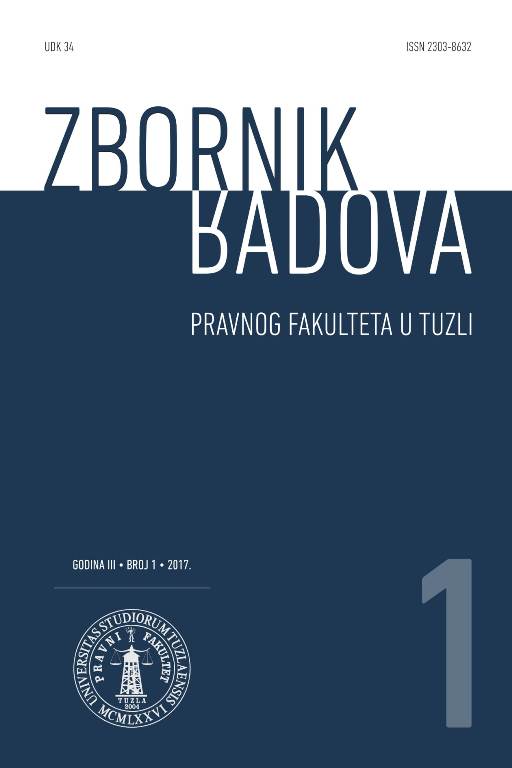USLOVNA OSUDA U KRIVIČNOM PRAVU BALTIČKIH DRŽAVA (ESTONIJA I LETONIJA)
SUSPENDED SENTENCE IN CRIMINAL LAW OF BALTIC STATES (ESTONIA AND LETONIA)
Author(s): Marina M. Simović, Dragan JovaševićSubject(s): Criminal Law
Published by: Pravni fakultet Univerziteta u Tuzli
Keywords: criminal offence; penalty; suspended sentence; court; baltic states;
Summary/Abstract: In contemporary criminal law, a prison sentence is the basic and most important type of criminal sanctions to be imposed to criminal acts perpetrators in order to prevent and combat crime. But, next to unconditional prison sentence, all criminal legislation also knows the different modalities of its imposition or execution. These are different forms of substitute or alternative in cases where unconditional detention is not necessary. Thus, we can distinguish full or partial suspension of the prison sentence or some other kind of punishment. In the first case, it is about the suspended sentence. This is a complete exemption from the execution of a court decision handed down prison sentences or determined (and or other types and extent of punishment) for a specified time (checking) and under certain conditions. In the case of conditionally convicted person does not meet the set of general and special, mandatory or optional requirements, criminal law provides for mandatory or optional revoke the suspended sentence. However, in addition to the suspended sentence as a form or modalities of execution imposed prison sentences, some modern criminal laws recognize and suspended sentence as a special kind of criminal penalties - as a measure of warning. Second partial suspension form is called a conditional release. The conditional release is partial suspension of prison sentence under certain conditions and for a defined period, but only after the convicted person has already served sentence partially. For granting conditional release also is necessary to fulfill cumulatively prescribed conditions through which it assesses whether and to what degree is earned special prevention of the convicted person in sense of re-education and re-socialization. A prerequisite for the implementation of these measures is the fulfillment of the formal requirements - in terms of type and prison sentence duration, or material conditions - assessment of the court that the application of penalties in case of concrete, is not necessary because the goals (purpose) of punishment can be achieved without effective enforcement of prison sentences in whole or in part. This paper is about the concept, characteristics, conditions and methods of implementation of these forms of prison sentence suspension in the criminal law of baltic states: Estonia and Latvia.
Journal: Zbornik radova Pravnog fakulteta u Tuzli
- Issue Year: 3/2017
- Issue No: 1
- Page Range: 30-53
- Page Count: 24
- Language: Bosnian

